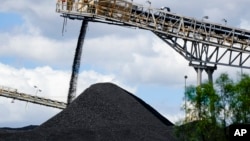Australia plans to limit coal and gas prices for a year to ride out the worst of the global energy crisis.
Official figures have shown that typical household power bills in Australia have risen 20 to 30% in 2022. The price caps are designed to help pensioners, the unemployed and low-income families.
Regulating the market could see some Australian household energy bills fall by more than $150 next year.
Tony Wood, the energy program director from the Grattan Institute, an independent research organization, told the Australian Broadcasting Corp. on Monday that it is an unprecedented move.
"I don't think anyone has ever seen anything like this before and this is something the government — this current government — had to do something about," he said. "There was never going to be a simple solution. Intervening [in] markets is not something that governments do lightly, it is not something I would ever normally even endorse but given the circumstances I think they had no choice."
Australia sells much of its coal and gas overseas. The government says temporary caps will stop resources companies charging their high export prices to domestic customers.
Gas producers won't be allowed to charge more than $8 a gigajoule, which is far less than the average price so far this year.
The oil and gas industry has condemned what it has described as a "heavy-handed, radical intervention" that would "smash" confidence in Australia as an investment destination for the resources sector.
The federal parliament is being recalled later this week to consider the changes. While its actions would bring relief to many vulnerable Australians, they won't stop rising energy bills. Cost-of-living pressures have been acute. This year, Australia has recorded its highest inflation in two decades.
Analysts have said that soaring power bills increase the pressure on the government to speed up the transition from fossil fuels, which now generate most of Australia's electricity, to renewable sources of energy.




